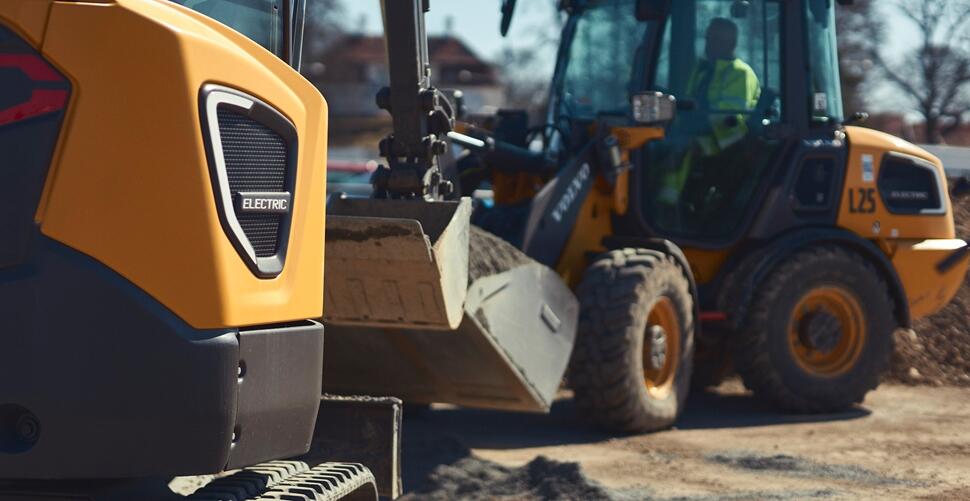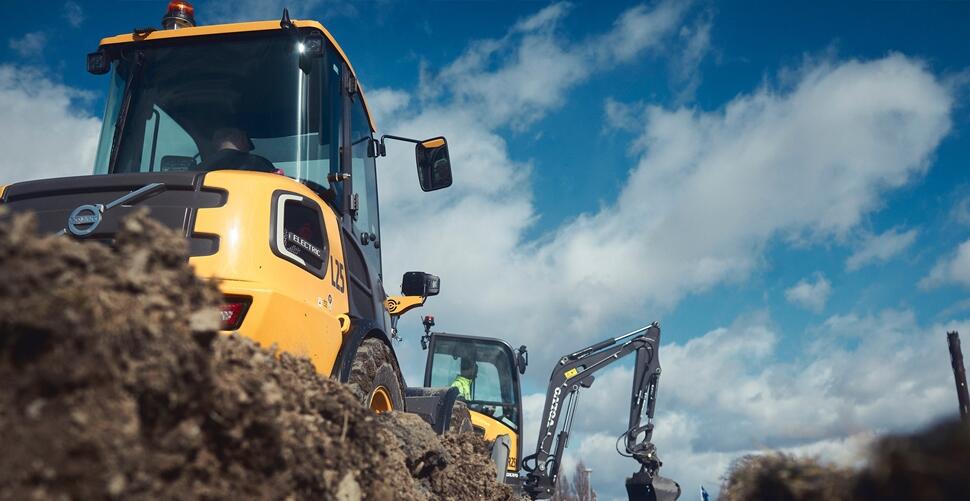Gustav Boberg, Segment Leader, at Volvo Construction Equipment explains why it is important to use electric construction equipment to build the electric charging infrastructure our society needs.

Sales of electric cars are soaring and charging points are popping up like mushrooms to accommodate them. While this is great, there are a lot of untapped CO2 benefits to be gained before they are even switched on – by building these charging points using zero emission machines. It’s crazy not to, in fact.
Leading by example, we have recently built 64 charging stations – sufficient to power up to 138 cars – at one of our major production facilities in Sweden, using only zero-emission compact electric excavators and wheel loaders.
The Volvo ECR25 Electric excavator and L25 Electric wheel loader – one of our five commercially available electric construction machines, the largest range in the world – more than proved they were up to the task of digging the narrow, shallow trenches required for electric cabling. Their compact dimensions and lack of noise also mean they are perfect for inner city and urban construction projects – the types of locations where we know charging facilities are needed the most.

In total, using electric machines rather than comparative diesel-powered units on this project is estimated to have saved 3,034 kg of CO2 being emitted to the environment. That’s not the only savings. With diesel prices at an all time high, using electric equipment cut the contractor’s fuel bills to 1,158 litres.
These machines are clearly a vital tool to build more sustainable power solutions and we need to work in close collaboration with all experts across the value chain – with energy providers, businesses, utility companies and of course local authorities – if we are to make our electric transformation a success across the board.
We enjoyed a strong collaboration with our partners in this project to build charging stations at our facility in Eskilstuna, Sweden. They included local contractor Tuna Förvaltning & Entreprenad, who provided the expert operators, and leading energy company Vattenfall. The charging stations are connected to Vattenfall InCharge, which enables monitoring of consumption, control and invoicing. The electricity powering the cars is certified green hydropower from Vattenfall.

Following a short introduction on how to charge the machines, the operators were soon at home with the electric equipment, breaking, trenching and backfilling as they normally would. In fact, in installing the 64 EV chargers (CTEK – Chargestorm® Connected 2) they operated the machines exactly as if they were diesel-powered – with no reduction in performance. Not only that, the electric machines are much quieter in use, feature low vibration levels and completely eliminate idling – saving considerable CO2 over comparably-sized diesel machines.
While these statistics stand for themselves, we know change can be daunting. In some corners, operators may be hesitant to swap from diesel to electric without assurance as to whether it can support the demands of their jobs. But every use case we have been involved in shows the change has been positive. In this project, Stefan Larsson, Construction Manager of Tuna Förvaltning & Entreprenad, told us: “This is our first experience of using electric machines – and it has been surprisingly positive. There was no compromise in how we went about our work, and the fuel savings and low noise were valuable added bonuses.”
This goes to show that being more sustainable need not mean sacrificing performance or profitability.
We urge players across the value chain, particularly local authorities and infrastructure companies, to choose electric when developing the charging ecosystem our society needs. With our electric machines available across multiple markets in the world, there is no excuse not to. Let’s ensure a more sustainable way of working is instilled from the beginning of our collective electric transformation. Change Starts Here. Let’s not be afraid to make the most of it.
Head of Brand, Marketing & Communication
Volvo Construction Equipment
Sales Region Europe / International
E-mail: anne.bast@volvo.com
Phone: 0735585906